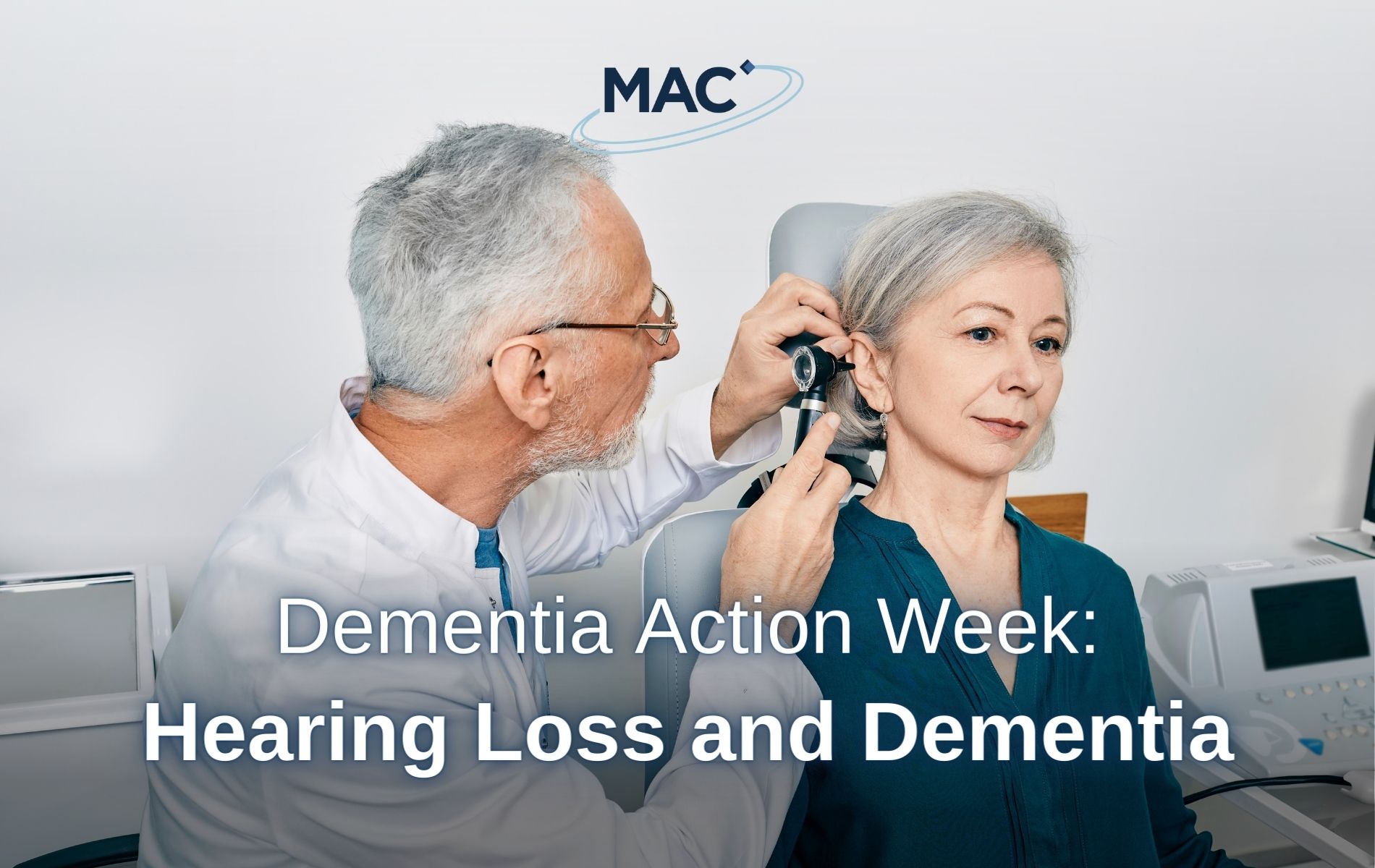This Dementia Action Week, we’re raising awareness of the relationship between hearing loss and dementia. While they may appear unrelated at first glance, emerging research is revealing a profound interplay between the two, emphasising the critical role of early medical intervention in safeguarding cognitive health.
How widespread is hearing loss?
Hearing loss, often brushed off as an inevitable consequence of aging, affects one in six adults in the UK1. Yet, its repercussions extend far beyond mere auditory impairment as a correlation emerges between untreated hearing loss and cognitive decline, including dementia and Alzheimer’s disease.
These medical conditions are some of the most prevalent to impact our older generation. Around 900,000 people in the UK are living with dementia, with this figure set to rise to 1.6 million by 20402. Alzheimer’s is the most common form of dementia. Alzheimer’s is most common in people aged over 65; however around 1 in every 20 people under 65 are living with the condition3, compared to 1 in 9 over 654. Developing dementia before the age of 65 is considered ‘young onset’ dementia.
How is hearing loss linked to dementia?
The mechanisms underlying the association between hearing loss and dementia are complex yet intertwined. One theory suggests that the cognitive requirement imposed by struggling to hear and comprehend speech may overwhelm the brain, leading to cognitive fatigue and subsequent decline. Moreover, social isolation resulting from untreated hearing loss can exacerbate cognitive deterioration, depriving individuals of crucial cognitive stimulation and social engagement.
The Importance of Medical Intervention
Early intervention is integral in this intricate web of interconnected health concerns. Timely diagnosis and management of hearing loss not only improve auditory function but also serve as a protective factor against cognitive decline. By addressing hearing impairment proactively, individuals could delay or possibly prevent the onset of dementia, thereby enhancing their overall quality of life and preserving cognitive vitality.
In one study, prevalence of dementia among patients with moderate to severe hearing loss was 61 percent higher than prevalence among patients who had normal hearing. Those who used hearing aids, however, had a 32 percent lower prevalence of dementia5.
The significance of early medical intervention cannot be overstated. Routine hearing screenings, particularly among older adults, are imperative for early detection and prompt intervention. With advancements in hearing aid technology and rehabilitative therapies, individuals can effectively manage hearing loss and mitigate its cognitive consequences.
Concerned about yours or a loved one’s memory?
Did you know that MAC Clinical Research proudly provide free memory tests for over 50s to the local communities in Lancashire, Merseyside, South Staffordshire, South Yorkshire, Teesside, and West Yorkshire.
At MAC Clinical Research, individuals attending the memory clinic can benefit from:
- An appointment within four weeks with the specialist team who are registered Dementia Friends6
- Assessment and discussion of memory concerns in a relaxed friendly environment
- Explanation of the results of the assessment
- Liaison with their GP
- Ongoing memory reviews where needed
- Option to access potential new treatments via clinical trials
If you are over 50 years old and have concerns about your memory, visit our Memory Assessment Research clinic’s webpage for more information and to register for a free memory test.
1 British Academy of Audiology – Hearing loss and deafness
2 Alzheimer’s Research UK – INTRODUCTION TO THE DEMENTIA STATISTICS HUB
3 Alzheimer’s Research UK – Young onset dementia
4 Alzheimer’s Association – Alzheimer’s Disease Facts and Figures
5 John Hopkins – New Study Links Hearing Loss With Dementia in Older Adults
6 Dementia Friends – Become a Dementia Friend




